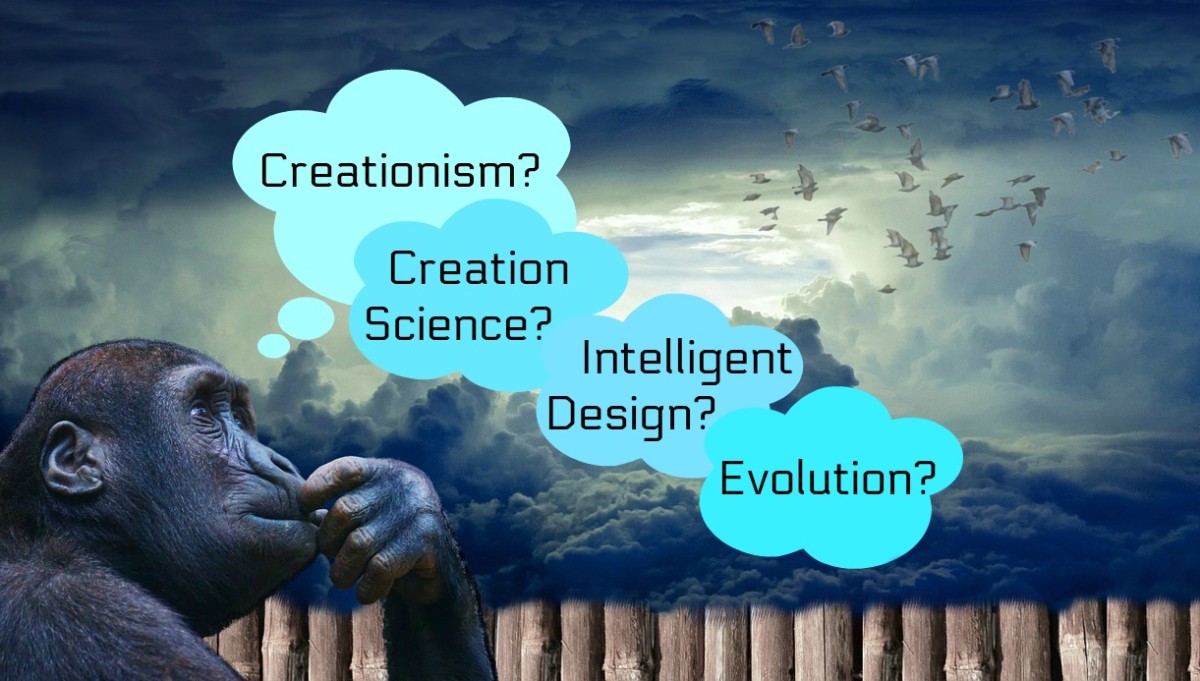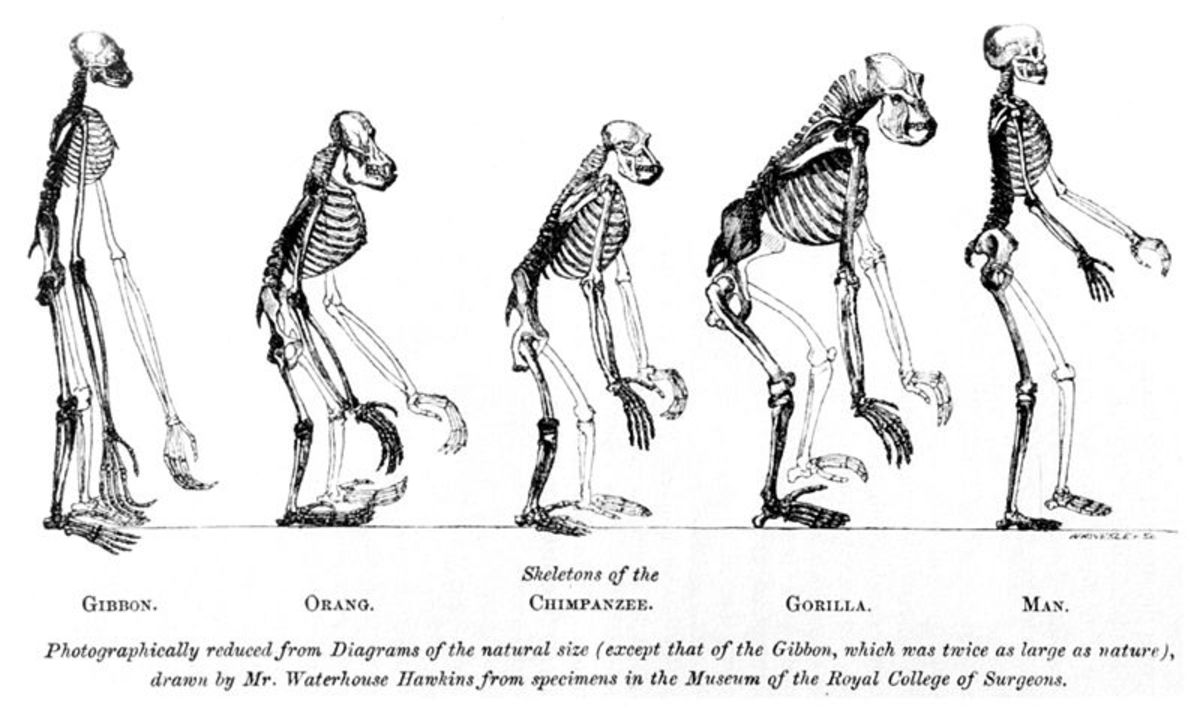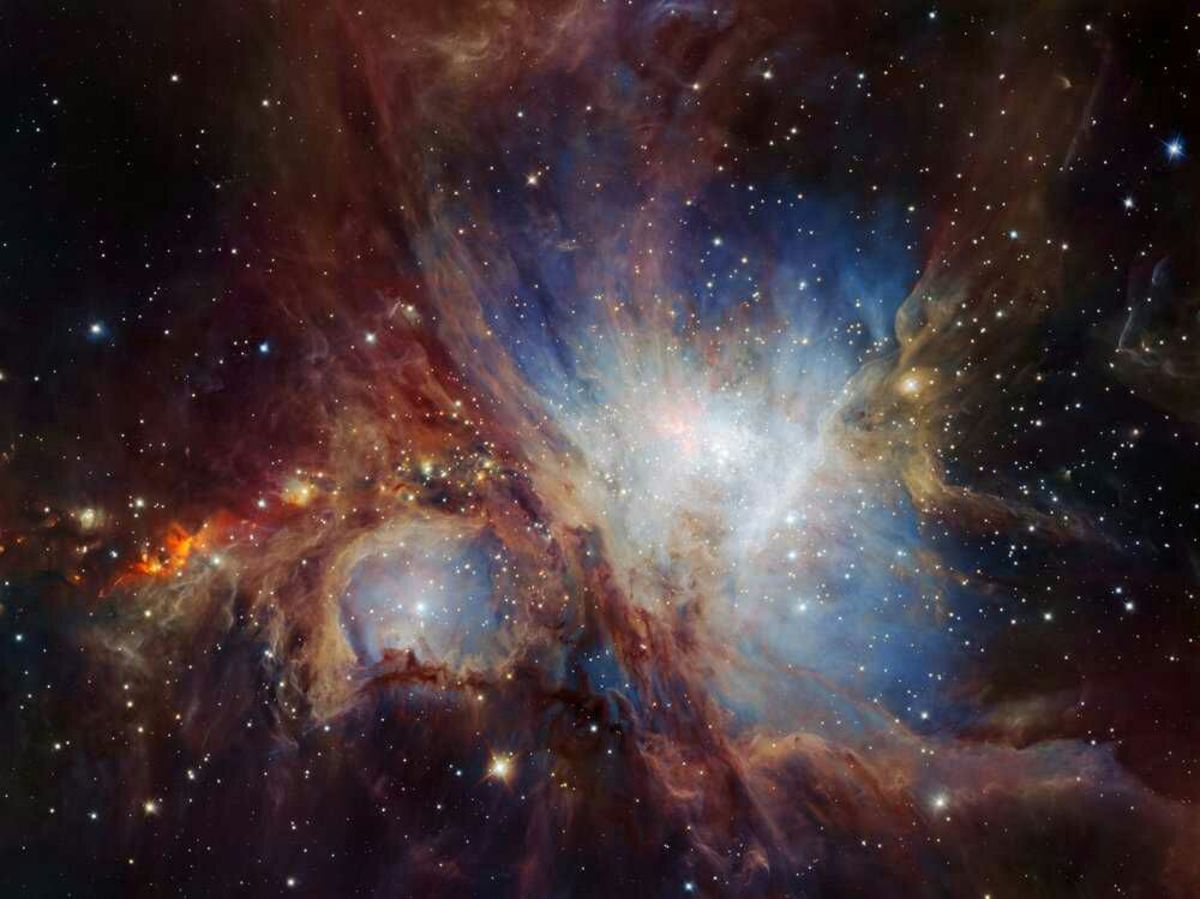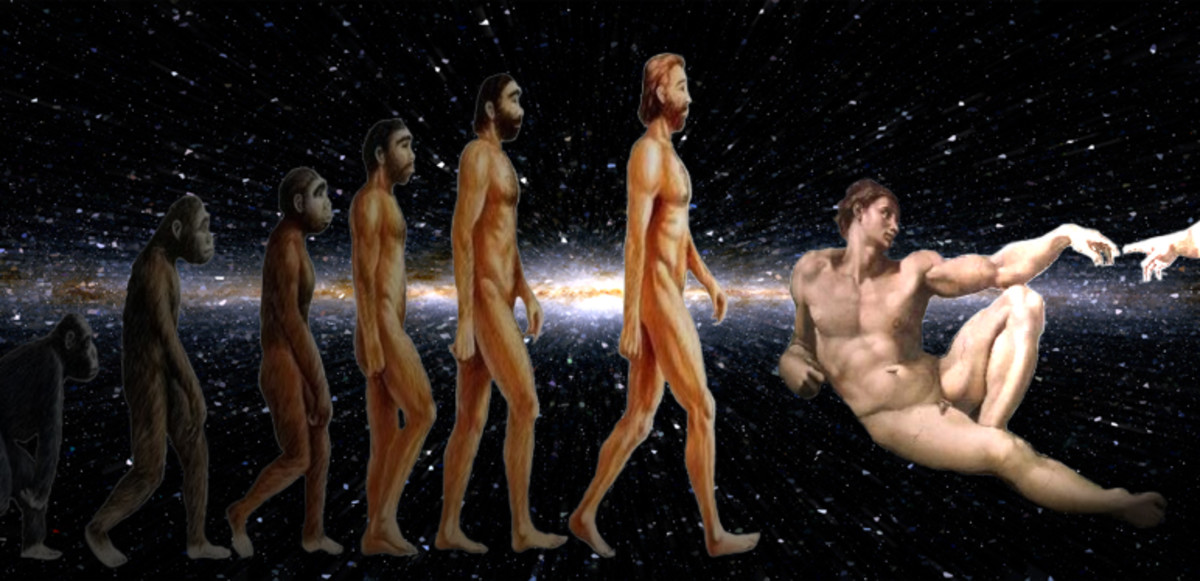Continuing Creation and Evolution
Traditionalism
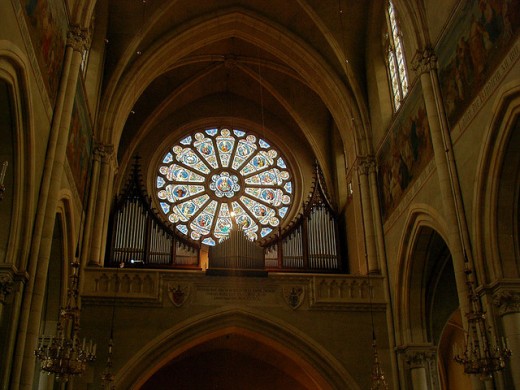
Continuing Creation
Highlights
- Continuing Creation
- Evolution
- Philosophical conflict in relation to Continuing Creation
- Theological responses in relation to Continuing Creation
- Questions that emerge in relation to Continuing Creation
Continuing Creation
The main focus of this article is on ideas about Continuing Creation. In relation to Continuing Creation, sources of philosophical conflict are considered, as well as theological responses. I will include my own critique, along with some questions that emerge in relation to Continuing Creation.
Darwin's Theory of Evolution represented a three fold challenge to Christianity. Darwin's Theory challenged Biblical Literalism, Human Dignity, and Divine Design.
The philosophy of Continuing Creation is an integration, a synthesis of Evolution and Creation. From the perspective of Continuing Creation, Creation is not a static, non-evolving, instantaneous event. In contrast, Continuous Creation is inclusive of an on-going metaphysical system - which gives an important place to temporality and change as characteristics of all entities and aspects of Creation. Also, all Beings are understood to be interdependent in an ecological understanding of the web of life.
From the perspective of Continuous Creation, characteristics that are uniqe to humans are acknowledged. Both continuity and discontinuity in Evolution is a process of metaphysical levels - and characteristics are common to all levels, yet at higher levels, more and new kinds of organization and activity emerges.
The Process Philosophy of Whitehead is the most definitive metaphysical system in which Evolution and Continuing Creation can be integrated.
Conflict In Relation To Continuing Creation
The four sources of conflict in relation to Continuing Creation are the challenge to scripture, to design, to ethics, and to the dignity of the human. The four theological responses to Continuing Creation are Traditionalism, Liberalism, Modernism and Naturalism.
Traditionalism
Traditionalism is concerned with Traditional Theism and the doctrine of Creation. The origins of the human and the religious meaning of Creation is understood from the Roman Catholic and Neo-Orthodox perspective. Creation and Evolution are considered to be philosophical perspectives as expressed in terms of unrelated languages. Traditionalism advocates a deistic God as creator and designer of the universe. In keeping with the biblical conception, Whitehead understands God as the source of novelty as well as order. God maintains an active relationship with the world in every moment, which allows for continuing Creation to occur. In Traditionalism the challenge to biblical scripture is refuted and the argument from Design emerges.
Liberalism
Liberalism maintains a focus on Liberal Theology and the argument from Design. Liberal Theology asserts that there is Design inherent in the structure of the world. Inadequacies of the Evolutionary Theory emerge, when one considers Liberal Theology in relation to Continuing Creation. Conclusions about God are infered, not from revelation, but rather from nature. Thus, there are greater possibilities for interactions between science and theology. Evolutionary theory cannot account for various phenomena. The scientific existence of systems of laws and properties through which life and mind emerge is itself evidence of a theological cosmic purpose. The relation of Teleology and Mechanism in evolution reinforces one another.
Praying

Modernism
Modernism advocates an Evolutionary Theism and the immanence of God. Whereas Traditionalism relies on revelation, and Liberalism relies on theological conclusions from Design in nature; and according to Modernism, Divine immanence is stressed. The conception of the deity may vary from Bergon's impersonal life force to Teilhard's Omega. Novelty, creativity and emergence are characteristic in Modernist philosophy. Reality is perceived as a dynamic process of inter-related levels, where God, nature and the human exist in continuity.
Naturalism
Naturalism highlights the status of the human in relation to Evolutionary Naturalism. With Naturalism all concepts of God are rejected, and there is nothing transcendent of nature. The human emerges as a product of a dynamic natural process, and creativity is inherent in the universe. The salvation of humanity exists in human values and capacities. Thus, evolutionary ethics becomes a central consideration.
Nice Waterfall

Religion
Conclusions About Continuing Creation
In conclusion, the Dualistic view promoting a dualism of body and soul (as advocated by Catholicism and Protestantism) leave unexplained the existence of a unity in the diversity of existence.
Reductionist views, as advocated by Huxley, describe the human as essentially continuous with nature. A higher nature, Soul or Divine purpose is left unexplained.
Two-Language views see Creation and Evolution as two unrelated languages that have nothing to do with each other. I consider this perspective as problematic since it does not enhance insight, but rather merely constructs a problem in relation to Continuing Creation. Finally, I find the idea of Continuing Creation and the perception of time, as infinite rather than finite, to encompass a widened perspective of reality. Such a broad vision promotes the answering of questions that remained vague, in more limited, narrow philosophical systems of thought (such as Creation as a momentary event, emergent in finite time). With the idea of Continuing Creation, Divine activity in relation to the world can be understood from a wider angle of vision. However, questions of Divine freedom and transcendence emerge, that are left unanswered.
I also have a question in relation to an aspect of Whitehead's philosophy. I've noticed that from Whitehead's perspective, the Teleological element is inseparable from the Mechanical, and final causation passes into efficient causation in the structure of an event. Is this efficient causation understood or clearly explained? Is final causation and transcendence merely left unanswered here, so that once again we are nearing a Mechanistic understanding?
References
Issues In Science and Religion, Harper Collins College Divinity, U.S.A.
April, 1971
Religion In An Age Of Science - Ian Barbour, Harper, San Francisco, 1990
Continuing Creation
What do you think about Continuing Creation?
Continuing Creation
© 2014 Deborah Morrison

